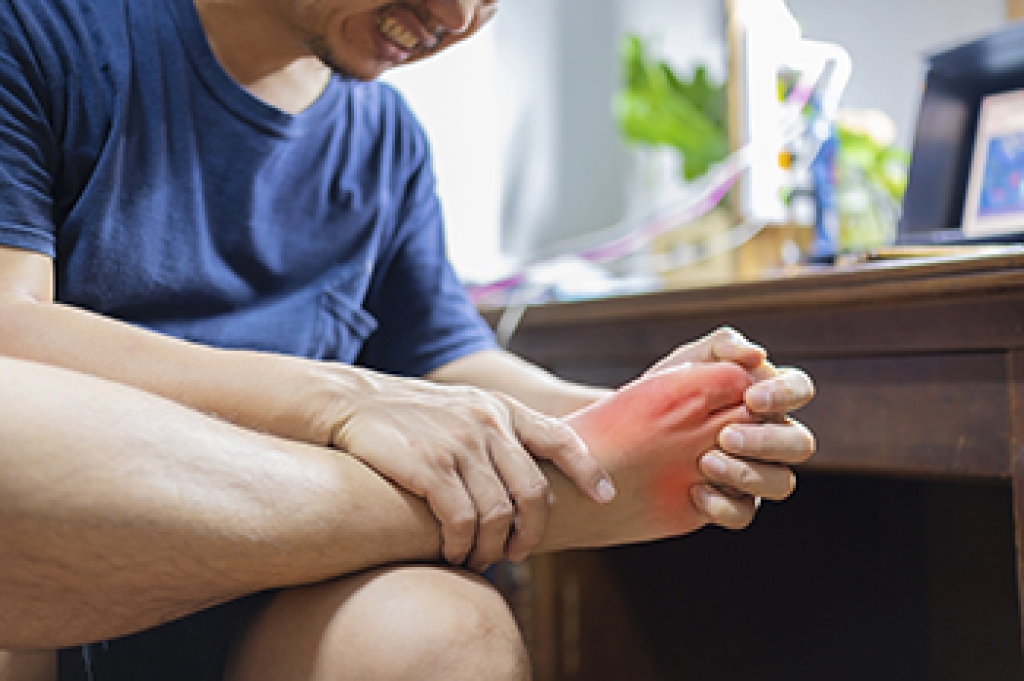If you suffer from sudden pain, swelling, tenderness, heat, and stiffness in the joint of your big toe, you may have gout. This condition is an inflammatory form of arthritis where excess uric acid forms hardened crystals in the joints. The big toe is usually where gout occurs. People most at risk of developing gout are those with diabetes, hypertension, obesity, kidney dysfunction, or a genetic predisposition to it. Some believe that eating foods that are rich in purines can also contribute to gout’s formation in a person’s body. Uric acid is a byproduct of the body’s process of breaking down purines. People who suspect they have gout should consult with a podiatrist who can not only diagnose the condition, but help manage pain with anti-inflammatory medicine, make dietary recommendations, and even remove uric crystals in severe cases.
Gout is a painful condition that can be treated. If you are seeking treatment, contact the podiatrists from Boston Common Podiatry. Our doctors will treat your foot and ankle needs.
What Is Gout?
Gout is a form of arthritis that is characterized by sudden, severe attacks of pain, redness, and tenderness in the joints. The condition usually affects the joint at the base of the big toe. A gout attack can occur at any random time, such as the middle of the night while you are asleep.
Symptoms
- Intense Joint Pain - Usually around the large joint of your big toe, and it most severe within the first four to twelve hours
- Lingering Discomfort - Joint discomfort may last from a few days to a few weeks
- Inflammation and Redness -Affected joints may become swollen, tender, warm and red
- Limited Range of Motion - May experience a decrease in joint mobility
Risk Factors
- Genetics - If family members have gout, you’re more likely to have it
- Medications - Diuretic medications can raise uric acid levels
- Gender/Age - Gout is more common in men until the age of 60. It is believed that estrogen protects women until that point
- Diet - Eating red meat and shellfish increases your risk
- Alcohol - Having more than two alcoholic drinks per day increases your risk
- Obesity - Obese people are at a higher risk for gout
Prior to visiting your podiatrist to receive treatment for gout, there are a few things you should do beforehand. If you have gout you should write down your symptoms--including when they started and how often you experience them, important medical information you may have, and any questions you may have. Writing down these three things will help your podiatrist in assessing your specific situation so that he or she may provide the best route of treatment for you.
If you have any questions, please feel free to contact our office located in Boston, MA . We offer the newest diagnostic and treatment technologies for all your foot care needs.






